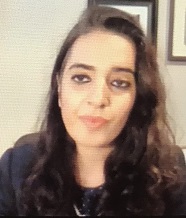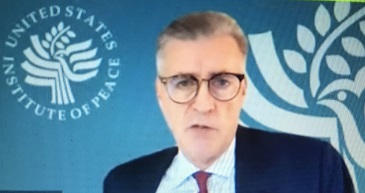Distinguished Panel Tackles US-Pakistan Relations at Washington’s Brookings Institution
By Elaine Pasquini
 |
 |
 |
Bruce Riedel |
Madiha Afza |
Richard Olson |
Washington, DC: On October 13, the Center for Middle East Policy at the Brookings Institution hosted a panel to discuss the future of US–Pakistan relations, an increasingly popular topic in Washington these days.
Now is the time for the US to improve relations with Pakistan, said Bruce Riedel, author, and senior fellow at the Brookings Institution’s Center for Middle East Policy, stressing it is an opportunity we have not had since the Soviet Union invaded Afghanistan in 1979.
Because US military forces have withdrawn from Afghanistan “we now have an opportunity to deal with Pakistan in a holistic approach not fixated by Afghanistan,” Riedel said. With a fast-growing population, the fourth-largest nuclear weapons arsenal in the world and home to one of the largest Shi’a minorities in the Muslim world, “Pakistan is a country that matters a lot,” he pointed out. “We have an opportunity to engage, but engagement does not mean agreement. It means that on some issues we are going to have sharp differences of opinion, but we will be able to influence their opinions because the United States matters a lot to Pakistan. We have an opportunity…to have a real working relationship with Pakistan.”
The Biden administration has proposed having a “summit on democracy,” Riedel continued. Pakistan has one of the most vibrant democracies in the Muslim world, he noted. “Its elections really matter, and they should be invited.”
Noting that President Biden has yet to have a telephone call with Prime Minister Khan, Riedel suggested that inviting the Pakistani leader to the summit on democracy should be the subject of the first Biden-Khan phone call. “Not to do that would send a very, very dangerous message not only to the Imran Khan government, but to the people of Pakistan,” he said.
“I think Pakistan’s relationship with the US now post-Afghanistan really just stands at a precipice and this is a relationship that matters greatly to Pakistan,” Madiha Afzal, a fellow in the Foreign Policy program at the Brookings Institution, noted.
“Pakistan has repeatedly said it wants a relationship based on geo-economics, trade and regional connectivity,” she said. “But the US has not shown that it is interested…and the relationship continues to be defined almost exclusively by Afghanistan.” Two months after the fall of Kabul, the US is trying to figure out what went wrong in Afghanistan and the role of Pakistan has come up repeatedly in Congressional hearings.
With respect to Pakistan’s troubled relationship with neighboring India, particularly where Kashmir is concerned, Afzal contended the mood in Pakistan is “not to do more when it comes to India in terms of improving the relationship until there is something done about the August 5, 2019 revocation of Kashmir’s autonomy. Any moves that were made on re-instating trade with India have been blocked by political parties within Pakistan, including the ruling party, because of the strong sentiments that Pakistan’s politics and public opinion have over Kashmir.”
While Pakistan would like the United States to focus on geo-economics rather than geo-politics and military issues, “Pakistan is still a challenging environment for US and international firms to invest in,” according to Richard Olson, former US ambassador to Pakistan and senior advisor for the Asia Center at the United States Institute of Peace. If the US would allow the International Monetary Fund and the World Bank to be “unencumbered in their advice to the Pakistani government…some of the underlying economic issues of the Pakistani economy can be addressed and that would allow geo-economics to become a more serious proposition in terms of building a foundation for the US relationship with Pakistan over time,” he added.
The diplomat stressed the importance for the United States to maintain long-running educational exchanges with Pakistan, both on the military side with IMET (International Military Education and Training Program) as well as the civilian side.
Olson weighed in on the possibility of Islamabad being an intermediary between the US and Iran on renegotiating another nuclear deal. “This is intriguing,” the ambassador said, “but if the UAE and Saudi Arabia are opposed to an agreement, I think it would be very hard for Pakistan, given the enormous role that Saudi Arabia and the UAE play financially with regard to Pakistan. But certainly, it’s worth exploring.”
Pakistan also must now deal with a Taliban government in neighboring Afghanistan, Olson pointed out, “which could generate instability if the Taliban retain their very harsh rule.”
“I think Pakistan would like to be done with Afghanistan,” Olson opined. “They would like to be done with their forever war, which is more forever than ours. But I think Afghanistan is likely to dominate their relationship with the US and the international community for some time to come.”
(Elaine Pasquini is a freelance journalist. Her reports appear in the Washington Report on Middle East Affairs and Nuze.Ink.)

